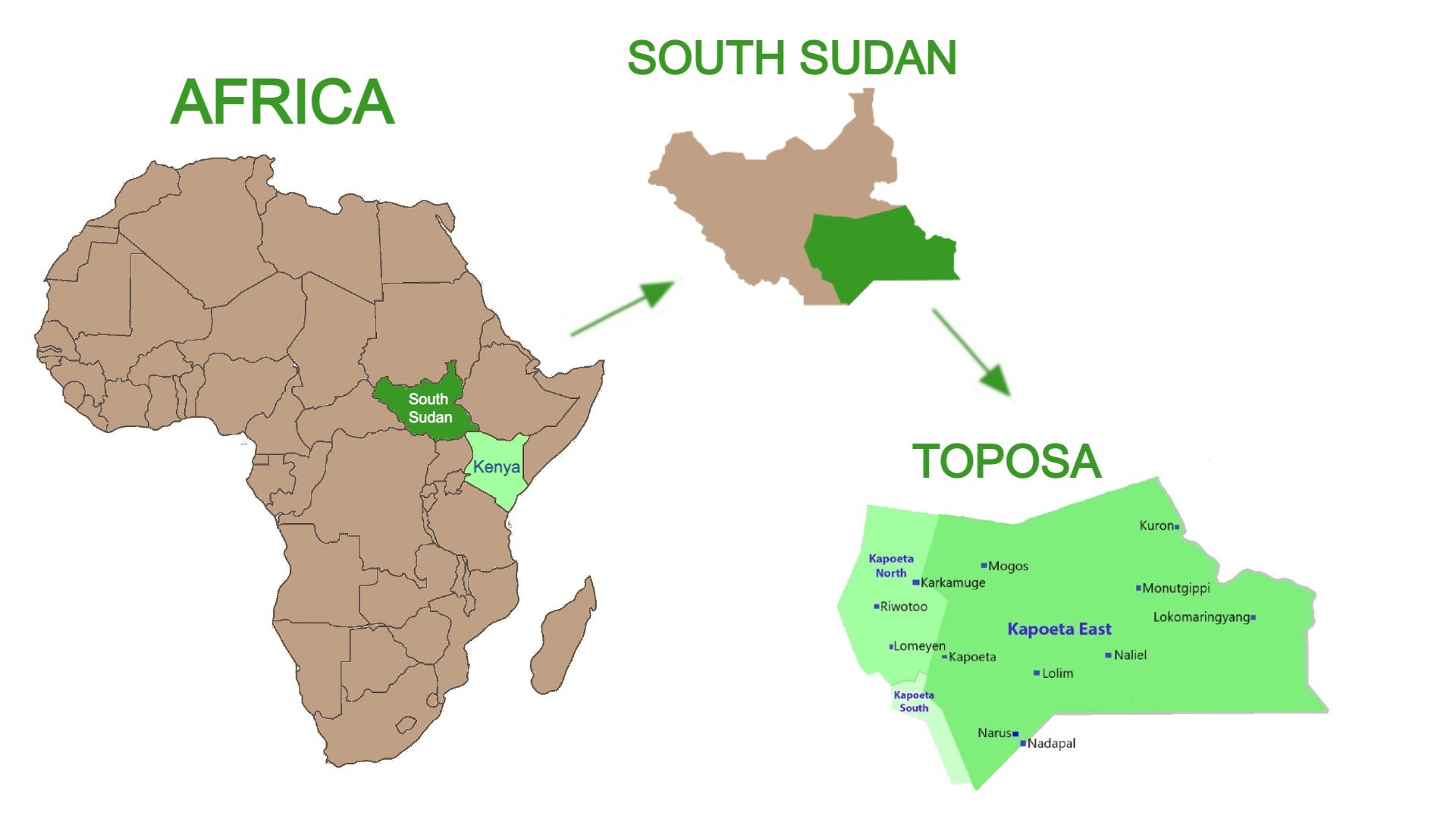

The Toposa People are Nilotic group speakers scattered in the Eastern Equatorial region of South Sudan, Eastern Africa. They speak Ng’atoposa language, and some speak Arabic and English. Their population in South Sudan alone is estimated at 533,811. There are also pockets of Toposa people in neighboring countries – Kenya (3,000), Uganda (54,000), and Ethiopia (18,000).
The Toposa and Turkana share a similar dialect and culture. They are considered an Unreached People-Group (UPG). The country they live in had been warring for over two decades – until 2011. Hardly any evangelical missionary could enter the community during war.
Soon after ceasefire was signed between the north and the south in 2011, Non-Government Organizations (NGOs) and church organizations began to enter South Sudan to rebuild the lives of the people. However, the Gospel has not penetrated due to lack of pastors that can reach them in their own language. The northern region of the greater Sudan was dominated by Islam.
The Toposa are animists – practicing African Traditional Religion (ATR). They live in fear of the spirit world. They consult local diviners, witchdoctors, sorcerers whenever they have a spiritual need. They sacrifice animals to appease spirits.
The Toposa believe in a supreme being and in the spirits of their departed ancestors. They pray and make sacrifices to these spirits as they communicate with them through a medium or witchdoctor. This is done when severe disasters strike, such as droughts and epidemics affecting their animals. They believe that the chiefs, particularly the paramount chiefs are nearer to god by virtue of their wisdom. Their supreme being is “Nakwuge”. He is a creator god who lives in the sky and is indifferent to man, though he is believed to determine the length of a man’s life. They believe that they originally lived with Nakwuge in the sky, but many slid down a rope to earth. The rope then broke, separating them from heaven.
The purpose of life in Toposa is to satisfy self-pleasure: traditional dance, marrying many wives, rites of passage, child initiation, and owning livestock to acquire identity and fame. They like to have many children who will inherit their possessions and name. They live in extended family clusters and clans that are headed by family or clan elders.
The Toposa people, like the Turkana, are nomadic pastoralists, moving from place to place in search of pasture and water. They value wealth in terms of livestock. They raise cattle, goats, donkeys, and sheep. They exercise cattle rustling. Stealing livestock from neighboring tribes is considered proof of manhood and heroism. They raid for livestock among the Turkana of Kenya, Diding’a of South Sudan, and Karamoja of Uganda. They use stolen animals to pay dowry.
Their staple food is meat, blood, and milk. They also make local brew which they consider part of food. They practice subsistence farming to complement their diet.
The Toposa are peaceable toward non-Toposa people living among them. Most Toposa people are illiterate. That is attributed to the long war. There are a few schools, health centers, and clean water facilities.